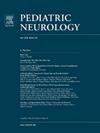肠道微生物衍生的短链脂肪酸和儿童注意缺陷/多动障碍的睡眠障碍:对神经生物学联系和治疗意义的见解
IF 2.1
3区 医学
Q2 CLINICAL NEUROLOGY
引用次数: 0
摘要
睡眠障碍经常影响被诊断为注意力缺陷/多动障碍(ADHD)的个体。目前的研究强调肠脑轴是影响睡眠和ADHD症状的重要途径。由肠道微生物群产生的代谢物,如短链脂肪酸(SCFAs),在肠-脑相互作用中至关重要,但它们与多动症患者睡眠问题的关系尚不清楚。本研究评估了被诊断为ADHD的儿童粪便SCFA水平与睡眠障碍之间的关系。研究人员还调查了服用哌甲酯和未服用哌甲酯的儿童之间SCFA谱的差异,以探讨药物的影响。方法本横断面研究纳入25名诊断为ADHD的儿童。使用儿童睡眠习惯问卷评估睡眠障碍,并通过气相色谱-质谱法定量粪便中短链脂肪酸的浓度。结果大多数参与者(92%)表现出临床显著的睡眠障碍,如儿童睡眠习惯问卷得分高于阈值所示。未服药的儿童表现出更高的就寝阻力和更高的scfa浓度。偏相关分析显示,睡眠持续时间问题与乙酸酯呈正相关,而睡前抵抗与异丁酸酯、异戊酸酯和戊酸酯呈负相关。从多元线性回归中,醋酸盐和丙酸盐成为睡眠问题的重要预测因子。结论:本研究强调了在药物治疗和未药物治疗的ADHD儿童中不同的SCFA特征,醋酸盐和丙酸盐成为睡眠障碍的潜在预测因素。这些发现强调了短链脂肪酸在肠-脑轴中的重要性,并强调了针对肠道健康改善睡眠的个性化ADHD管理策略的必要性。本文章由计算机程序翻译,如有差异,请以英文原文为准。
Gut Microbiota-Derived Short-Chain Fatty Acids and Sleep Disturbances in Pediatric Attention-Deficit/Hyperactivity Disorder: Insights Into Neurobiological Links and Treatment Implications
Background
Sleep disturbances frequently affect individuals diagnosed with Attention-Deficit/Hyperactivity Disorder (ADHD). Current research emphasizes that the gut-brain axis is a significant pathway influencing both sleep and ADHD symptoms. Metabolites such as short-chain fatty acids (SCFAs), generated by gut microbiota, are crucial in gut-brain interaction, but their connection to sleep issues in ADHD is not well understood. This study assessed the relationship between fecal SCFA levels and sleep disturbances in children diagnosed with ADHD. Differences in SCFA profiles between methylphenidate-medicated and unmedicated children to explore the impact of medication were also investigated.
Methods
This cross-sectional study included 25 children diagnosed with ADHD. Sleep disturbance was assessed using the Children's Sleep Habits Questionnaire, and fecal SCFA concentrations were quantified via gas chromatography-mass spectrometry.
Results
Most participants (92%) exhibited clinically significant sleep disturbances, as indicated by Children's Sleep Habits Questionnaire scores above the threshold. Unmedicated children showed higher bedtime resistance and greater concentrations of most SCFAs. The partial correlation analysis showed a positive correlation between sleep duration problems and acetate, while negative correlations between bedtime resistance were shown in relation to iso-butyrate, iso-valerate, and valerate. From multiple linear regression, acetate and propionate emerged as significant predictors of sleep issues.
Conclusions
This study highlights distinct SCFA profiles in medicated and unmedicated ADHD children, with acetate and propionate emerging as potential predictors of sleep disturbance. These findings highlight the importance of SCFAs in the gut-brain axis and emphasize the need for personalized ADHD management strategies targeting gut health to improve sleep.
求助全文
通过发布文献求助,成功后即可免费获取论文全文。
去求助
来源期刊

Pediatric neurology
医学-临床神经学
CiteScore
4.80
自引率
2.60%
发文量
176
审稿时长
78 days
期刊介绍:
Pediatric Neurology publishes timely peer-reviewed clinical and research articles covering all aspects of the developing nervous system.
Pediatric Neurology features up-to-the-minute publication of the latest advances in the diagnosis, management, and treatment of pediatric neurologic disorders. The journal''s editor, E. Steve Roach, in conjunction with the team of Associate Editors, heads an internationally recognized editorial board, ensuring the most authoritative and extensive coverage of the field. Among the topics covered are: epilepsy, mitochondrial diseases, congenital malformations, chromosomopathies, peripheral neuropathies, perinatal and childhood stroke, cerebral palsy, as well as other diseases affecting the developing nervous system.
 求助内容:
求助内容: 应助结果提醒方式:
应助结果提醒方式:


